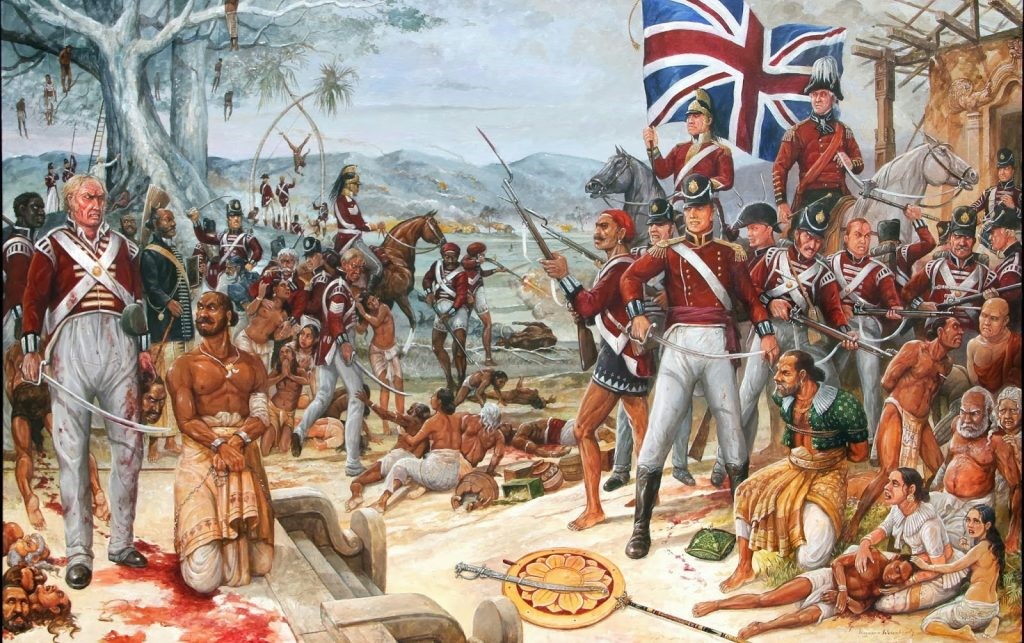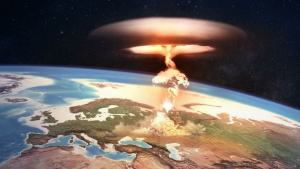In 1945, more than 150 years after the US Declaration of Independence, Vietnamese revolutionary Ho Chi Minh cited the Declaration when declaring his own country free from French colonial rule: “All men are created equal. They are endowed by their creator with certain inalienable rights; among them are life, liberty, and the pursuit of happiness.”
50 years later, reflecting on ‘The Tragedy and Lessons of Vietnam’, Secretary of Defence Robert S. McNamara, admitted: “We underestimated the power of nationalism to motivate a people … to fight and die for their beliefs and values – and we continue to do so today in many parts of the world. Our misjudgements … reflected our profound ignorance of the history, culture and politics of the people in the area …”
After World War I in 1918, US President Woodrow Wilson delivered a speech, strongly asserting that people should be able to determine their own political destiny, free from the control of foreign powers. The powerful message resonated with pro-independence revolutionaries from places such as Egypt, Korea, and Vietnam but the US ignored their request for support.
Wilson used the principle of self-determination, as the basis for negotiating the Treaty of Versailles, which formally ended World War I. But when Allied leaders met in Versailles, Wilson found that England, France, and Italy were bent on remaining colonial powers. They wanted to regain what they had lost while punishing and humiliating Germany. Thus the way was paved for World War II.
In 1941, towards the end of that war, US President Franklin D. Roosevelt and British Prime Minister Winston Churchill released The Atlantic Charter advocating ‘self-determination’ for all nations. Roosevelt pressed Churchill to accept decolonization, but Churchill resisted the universal applicability of this principle, particularly regarding British colonial territories. The Atlantic Charter served as an inspiration for colonial subjects throughout the European empires as they fought for independence.
In 1945, the Charter of the newly established United Nations referred to the “respect for the principle of equal rights and self-determination of peoples”. 750 million people – almost a third of the world’s population then – were still living in colonies. In 1960, the UN passed a resolution calling for an end to all colonialism.
Millions died in wars of liberation where fading empires like France (in Algeria) and the US (in Vietnam) as an emerging one refused to end their domination.
In the three decades after World War II, many independence movements prevailed. By 1975, nearly 80 new members had joined the UN. But newly independent countries that tried to assert their sovereignty by gaining control of their own natural resources and charting their autonomous pathways, saw their leaders assassinated or removed in coup d’etats and regime change as former empires strived to prolong their colonial grip by other means.
Balance of power
A number of the newly independent nations resisted being absorbed into the American and Soviet spheres of influence during the Cold War, by forming a non-aligned movement born out of the 1955 Bandung conference where for the first time in the history of humanity the leaders of colonized and newly independent countries met to discuss the way forward in the interest of their own people.
Welcoming fellow leaders, Indonesian President Sukarno said: “For many generations our peoples have been the voiceless ones in the world. We have been the ignored, the peoples for whom decisions were made by others whose interests came first, the peoples who lived in poverty and humiliation.
Sukarno warned: “Colonialism has also its modern dress, in the form of economic control, intellectual control, actual physical control by a small but alien community within a nation. It is a skilful and determined enemy, and it appears in many guises. It does not give up its loot easily.”
Sukarno stressed “that all men and all countries have their place under the sun – to impress on the world that it is possible to live together, meet together, speak to each other, without losing one’s individual identity; and yet to contribute to the general understanding of matters of common concern, and to develop a true consciousness of the interdependence of men and nations for their well-being and survival on earth.”
At the same conference Chinese Prime Minister Chou en Lai said: “Today when the peoples of Asia and Africa are increasingly taking their destiny into their own hands, even though the present economic and cultural co-operation among ourselves cannot yet be of a very large scale, it can definitely be said that this co-operation based on equality and mutual benefit will have a great future.”
After 70 years, that future has arrived and the former colonies are converging and working together as BRICS+ countries, catching up with, and in some areas overtaking, the West and becoming great powers to be reckoned with. The supremacy of the US as the sole great power in the world is over.
In 1971, President Richard Nixon, on ‘Time’ referred to the 19th-century European Concert: ‘We must remember the only time in the history of the world that we have had any extended period of peace is when there has been balance of power. It is when one nation becomes infinitely more powerful in relation to its potential competitor that the danger of war arises. So, I believe in a world in which the United States is powerful. I think it will be a safer world and a better world if we have a strong, healthy United States, Europe, Soviet Union, China, Japan, each balancing the other, not playing one against the other, an even balance’.
At present the rebalancing is resulting in 110 proxy wars and armed conflicts worldwide. Will these continue to escalate and spread as those who for centuries have dominated the rest want to continue dominating, while the rest who have been dominated refuse to be dominated any more? Will nuclear weapons constrain us to take the road of dialogue and negotiations and not the road of mutual assured destruction?
Times of Malta 10 October 2025




